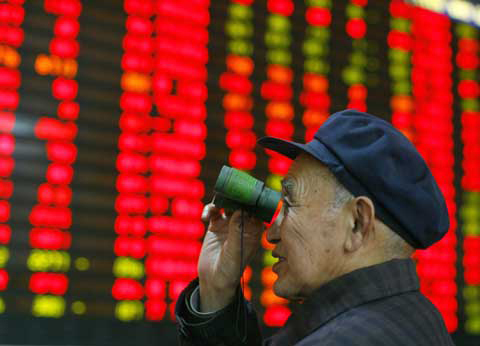Blog
BLOG: Five reasons why investors should not be fearful

Edward Smith, asset allocation strategist at Rathbones, believes that the poor start for equities this year has been driven by fear rather than economic fundamentals.
There are five principle reasons as to why investors should keep the faith:
A recession in developed markets is unlikely
This has been a financial correction, not an economic one: the probability of a recession in developed markets in the next four months currently implied by the macroeconomic data is very low. An economic crash – in the West or China – appears unlikely. We expected markets to become volatile as the US started to raise rates. And they have, but we reiterate that policy tightening is not a problem while a healthy gap between growth and interest rates (or the return on capital and the cost of capital) remains.
Positive economic data
Economic data continue to surprise to the upside in Europe and Japan. Across the Western hemisphere non-manufacturing Purchasing Managers’ Indexes (PMIs) are firmly in positive territory. Six of eight developed market services PMIs are above 55, up from three last quarter. This is far from an Armageddon scenario. Disappointing US manufacturing ISM data should be taken in context: the sector accounts for just 15% of GDP; services is the main driver of Western economies and in the US that ISM is at a healthy 55.3.
China fears overdone
Recently, markets have become obsessed with Chinese data and stock market performance. We think this focus is misguided. China’s equity market is notoriously fickle, driven as it is by retail investors. Granted, China’s leaders bungled attempts to support the stock market; the now-abandoned ‘circuit-breakers’ arguably making the falls worse, and stoked fear in investors. Still, only a small proportion of households dabble in the stock market, which should prevent any market crash from contaminating the real economy. There is no correlation between consumption spending and stock market returns, financial interlinkages are small and companies are not reliant on equity market capital to the same degree as Western counterparts.
China’s restructuring economy
China is moving from an economy led by manufacturing and construction to one being driven by services and private enterprises. These segments of the economy make up more than half of China’s output and continue to grow strongly. The old, heavily industrial China is in a severe slump, one that is likely to get worse before it gets better as policymakers accelerate restructuring in 2016. Remember, the overall rate of growth in the economy has already halved over the last five years and the world has not fallen apart. The January trade data release shows the volume of Chinese exports increased in December, helped by the currency devaluation since August. Importantly, there were also signs of improving domestic demand: import volumes grew by approximately 7% in 2015. Further evidence that the turmoil of the markets in no way reflects the economic trends.
No reason to panic about China’s currency
The falling renminbi frightened investors further, but, again, this is about poor communication by the People’s Bank of China (the central bank) rather than an indication of panic. In December it said it was moving toward abandoning ties to the dollar in favour of a trade-weighted float. It seems that they are actioning that plan much quicker than first indicated. This month, the central bank’s chief economist confirmed this was the case. If the policy change had been set out more plainly in advance, the market would probably have been much more sanguine – it’s eminently sensible, after all! This is far more another dollar appreciation story than a renminbi depreciation story. The Chinese central bank is spending foreign exchange reserves in record amounts to stop its currency from falling too quickly against the dollar, not engage in ‘competitive devaluation’. Progress towards a free floating renminbi is part of making China a market-based economy.
Conclusion
We remain vigilant for signs of deterioration in China. We’d escalate the probability of a ‘hard landing’ but only if we see a combination of a marked deterioration in service-sector PMI and other related data; if private sector profit growth starts to recede; if there’s further acceleration of capital outflows, and there is banking sector trouble. Nations and their economies tend to be stable when they are authoritarian, consolidated and closed; or democratic, stable and open. Turbulence tends to occur in-between these two states. China is just now emerging from the former and we should expect turbulence to continue for many years. As long-term investors, we need to assess what are just bumps in the road and what represent a material deterioration of economic conditions.
Edward Smith is an asset allocation strategist at Rathbones
[article_related_posts]